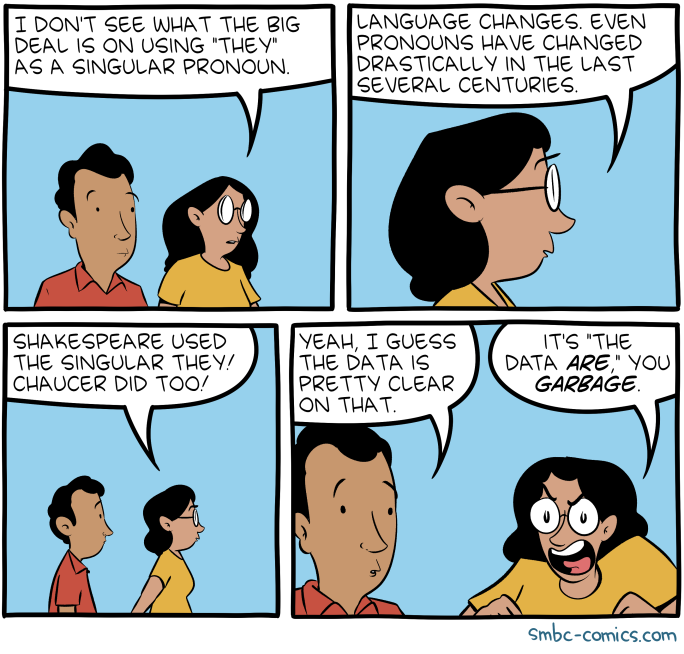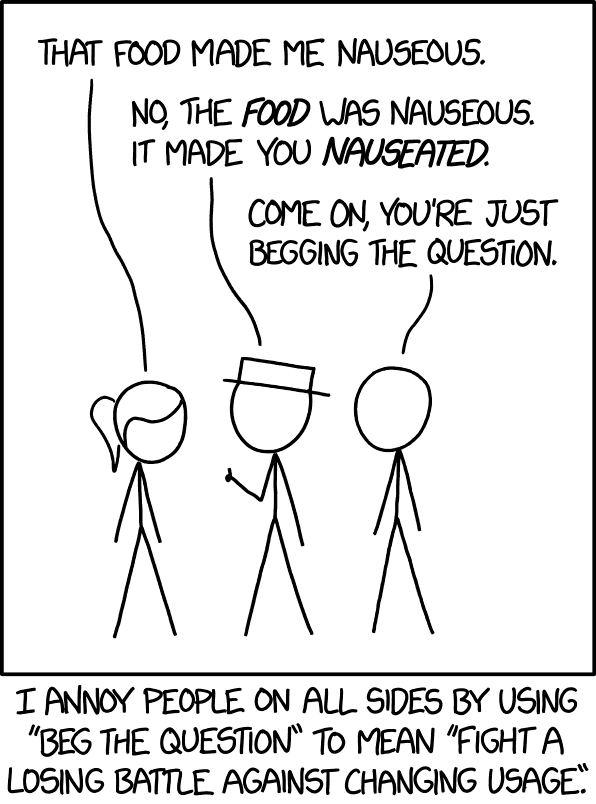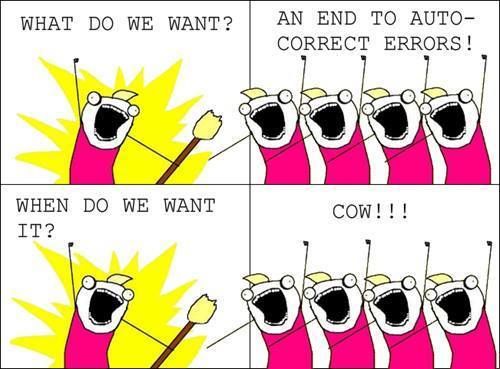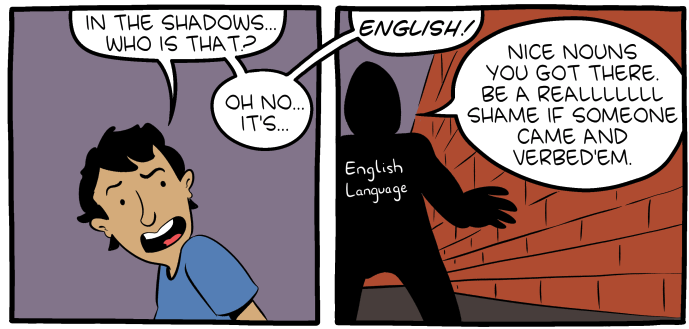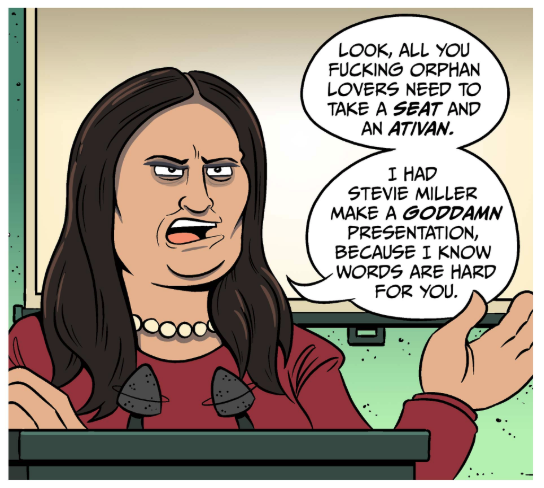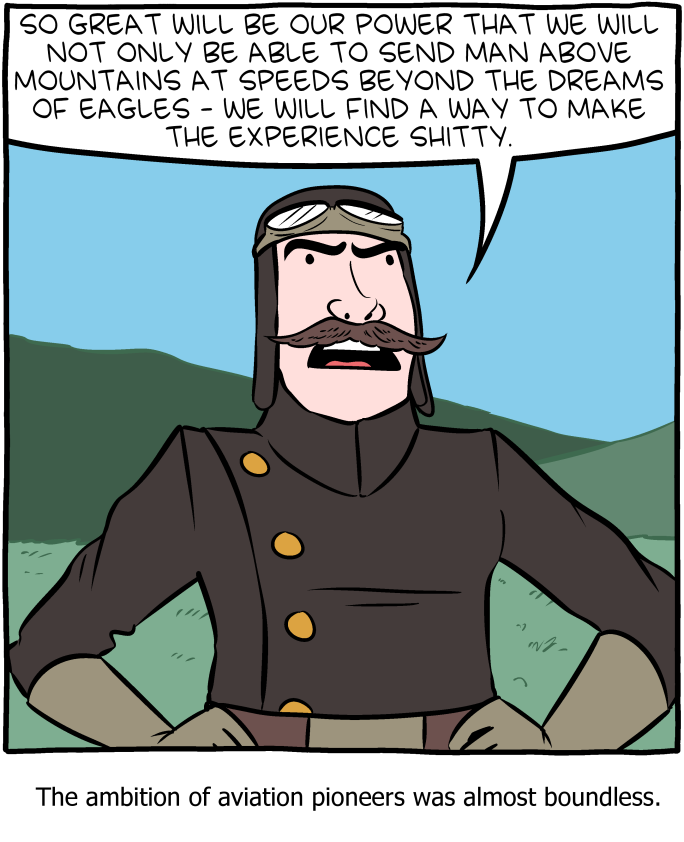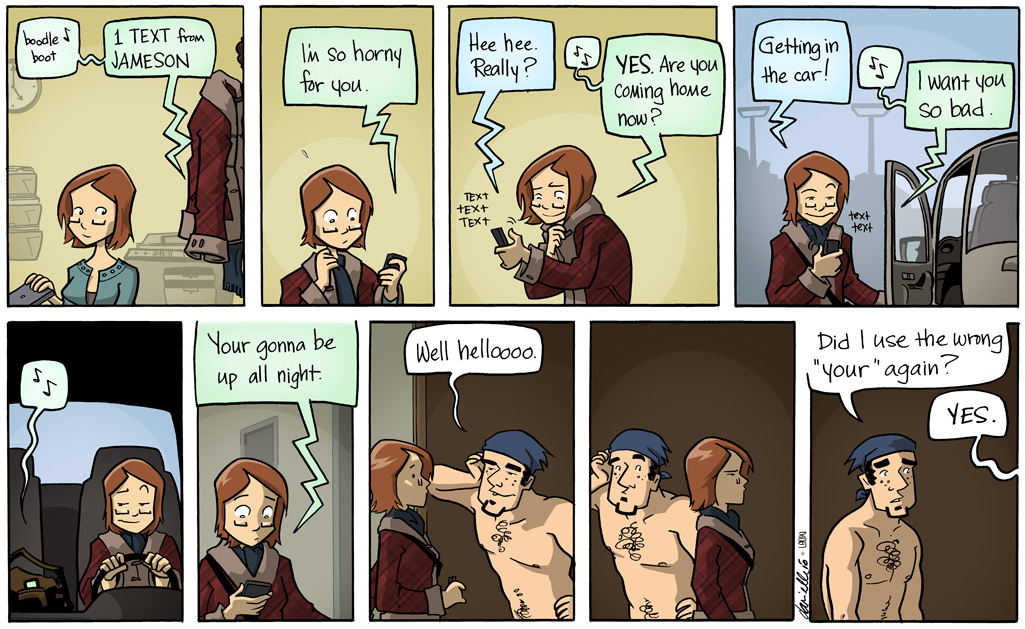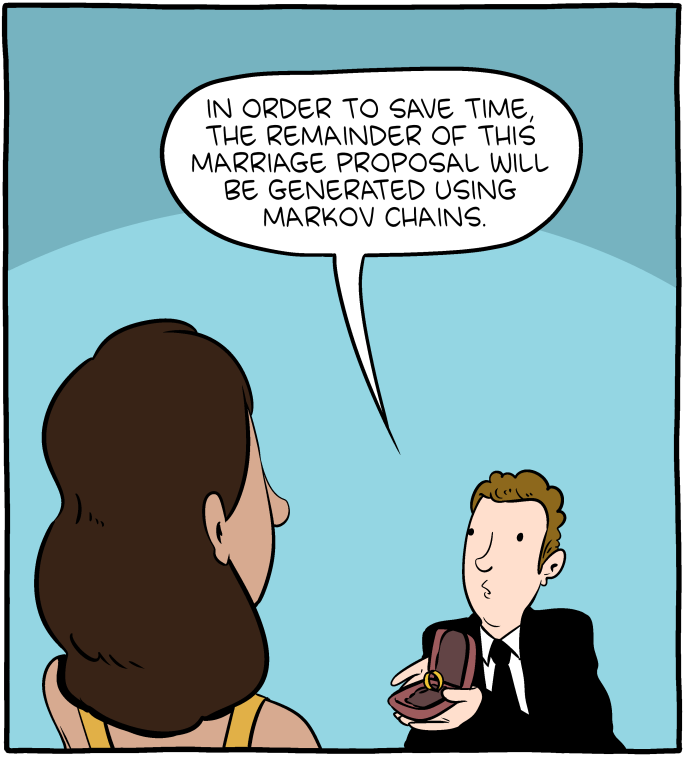Archive for Linguistics in the comics
Begging
Today's xkcd:
Mouseover title: "At least we can all agree on the enormity of this usage."
See "Begging the question: We have answers", 4/29/2010.
X-lord
Today's xkcd:
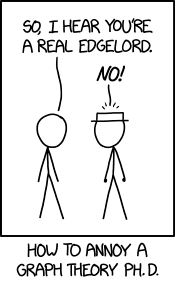
Mouseover title: "If you study graphs in which edges can link more than two nodes, you're more properly called a hyperedgelord."
Read the rest of this entry »
Autocorrect
By Allie Brosh:
Update — apparently this is a meme derived from Allie Brosh's art, but not created by her. See the comment below.
Cartoon zeugma of the month
From the first panel of the most recent Scenes From a Multiverse, an example of what Wikipedia calls "Type 2 Zeugma" or "semantic syllepsis":
Read the rest of this entry »
Realistic limitations
Today's Dumbing of Age features Amber performing a daring physical feat in order to help her friend Walky:

The mouseover title is "let's set realistic limitations for ourselves", and in the last panel, Amber remarks about what she's doing that "It's rough, sure, but it's not impossible, like calling anyone on the phone".
Read the rest of this entry »
Beyond the dreams of eagles
I'm about to head to Poland for Speech Prosody 2018, and then to Helsinki for a CHIST-ERA committee meeting, so today's SMBC is especially meaningful to me:
Spelling
This strip was recently reposted (colorized) in Danielle Corsetto's webcomic Girls With Slingshots:
Read the rest of this entry »
The Clickbayes Factor
Among many other applications, this hypothesis (from the most recent xkcd) may finally offer a quantitative explanation for the generally poor quality of language-related articles in Science and Nature:
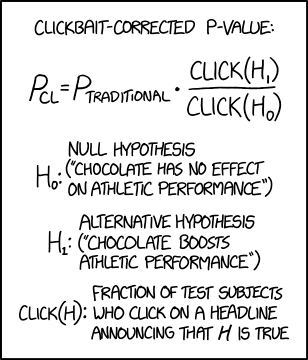
Mouseover title: "When comparing hypotheses with Bayesian methods, the similar 'clickbayes factor' can account for some harder-to-quantify priors."
Read the rest of this entry »
So true
Recently in PHD Comics:
My schedule is merely crowded over the next week or so, rather than insane, so I hope to be able to post a little more often.
